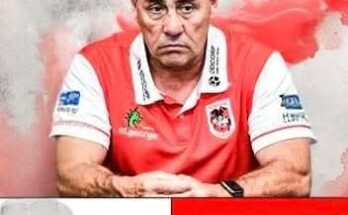Kyler Murray awakened early on Sunday morning with a gut feeling that something was very wrong. At exactly 4:30 a.m., he realized that this wasn’t just some vague discomfort, but something far more intense and alarming: severe diarrhea. Taking one of football’s most delicate positions literally meant only one thing—to retreat to the bathroom. He described it bluntly, as only he can: “I woke up at 4:30. I was like, I knew some sht wasn’t right. Immediately to the toilet… I had to take some Imodium to keep the fcking, to keep my stomach from f*cking with me.” Yet despite this unexpected and deeply unpleasant kick to his morning, he soldiered on, soon firing the Cardinals’ offense and ultimately saying, “It was all good, though. We got the W.”
It’s the sort of detail and quote that leaks out on social media, sensational and comedic, but it underscores something central about Murray’s mindset. It’s not just that he played while not feeling well—it’s how he played through it, without sugarcoating or dramatizing. He didn’t say he was “under the weather” or “not feeling 100 percent.” Instead, he painted a raw, vivid picture, refusing to sanitize the moment. This is curiosity served not with polish, but with grit.
Going into that game, expectations were high: it was Kellen Moore’s debut at the helm for the Saints, and for the Cardinals, it was important to demonstrate toughness and poise from the jump. And in that light, what Kyler told us early that morning becomes more than a punchline—it becomes a testament to his competitive DNA. The pain in his gut was real. The discomfort was real. And so was his resolve to push through and perform at an elite level.
On Sunday, Murray completed 21 of 29 passes for 163 yards and two touchdowns—one to Marvin Harrison Jr. and another to James Conner—leading Arizona to a 20‑13 win over New Orleans. That modest yardage total belied the impact of those scoring connections; his touchdowns turned out to be the difference. It was not a flawless performance by any stretch. But it was enough, and considering the physical toll he described enduring that morning, that is a quiet form of bravery worth admiring.
Reflect on what that means in the broader arc of professional sports. The NFL is no stranger to “playing through pain,” but usually, that refers to muscle injuries, foot pain, nagging aches, or minor strains—not violent gastrointestinal distress at 4:30 in the morning. To get up in the clutches of such discomfort, take Imodium—which itself can cause side effects—and then go complete a full game at quarterback level… and win? That’s beyond mere grit; that’s next‑level resolve.
Placing it in context: last season, Murray threw over 3,800 yards and 21 touchdowns while rushing for over 500 yards He’s a dual‑threat, dynamic quarterback—but also, one who’s battled injuries, including a torn ACL. His ability to bounce back physically, mentally, and emotionally has been long admired . The diarrhea episode might not be season‑changing—but it is character‑defining. It reminds fans and critics alike that behind every stat line is a human being, sometimes winning games while wide awake with stomach issues.
There’s also something ineffably human and even relatable about it. It strips away the veneer of professional athlete aura and leaves us with the undeniable truth that even elite quarterbacks have undignified mornings. That juxtaposition of high‑stakes athletic performance and low‑stakes bodily betrayal can’t help but provoke empathy—and a chuckle.
Still, Murray’s words are never just for amusement—they often reveal something deeper. The following reflection makes it hard to listen to his quote purely as a joke. He said, “I wasn’t going to miss the game… I don’t really know what sickness could make me miss a game,” according to an AP writer (Houston Chronicle, Reuters). That simple, stubborn sentence conveys more than toughness: it speaks to his unwavering priorities. Put simply: no gut feeling, however urgent, would keep him off the field. His commitment to the team, to the opportunity, to that moment of opening the season—was stronger than any physical barrier.
When the final whistle blew and Arizona walked away with the W, moments like that sharp pain faded in retrospect—almost memory. And to Murray, the winning mattered more than the discomfort. That’s the kind of narrative emblematic of cut‑throat sports: physical barriers, personal discomfort, mental fatigue accommodated for one overriding goal.
No heading, no structure—just a stream of thought that speaks to resilience, humanity, humor, and context. Let’s keep going.
This isn’t the first time Murray has shown that kind of mental and physical toughness. After his ACL injury, he came back revamped—comfortable and confident. He’s acknowledged being the happiest he’s been in the NFL in recent years (ESPN.com, ESPN). This weekend reminded us that while the legs may have returned, it’s the gut that underpins everything. It’s knowing he’ll persevere through anything—whether pain in the leg or in the bowels.
And let’s not forget: it was Kellen Moore’s debut as Saints head coach. There was extra energy, extra motivation from both sides. Murray’s pre‑game digestive disaster adds an odd layer of drama to that setup: while the Saints were debuting a new era, Arizona’s quarterback was battling his own internal chaos and still bringing his A‑game. Maybe that’s the story of that game—launching your season so imperfectly—and still executing at a moment when it matters most.
That’s part of the romance—and the raw appeal—of professional sports. It’s in these unfiltered, unguarded admissions that we find truth, we find relatability, we find the essence of competition: humans against adversity, whether that’s a defensive line or an upset stomach.
At the end of the day, Murray’s quote acts as a reminder that heroism comes in odd packages. Sometimes it’s hero’s welcome. Sometimes it’s hero’s resolve to stand up at 4:30 a.m., puke and run to the restroom, then take the meds, suit up, and throw two touchdown passes. That is a kind of heroism rooted not in myth, but in raw, somewhat questionable human condition—and that’s exactly why it resonates.
So here’s to Kyler Murray, quarterback extraordinaire, for showing us that true professionalism doesn’t wait for perfect conditions. It thrives in chaos—bodily or otherwise—and still gets the job done.



